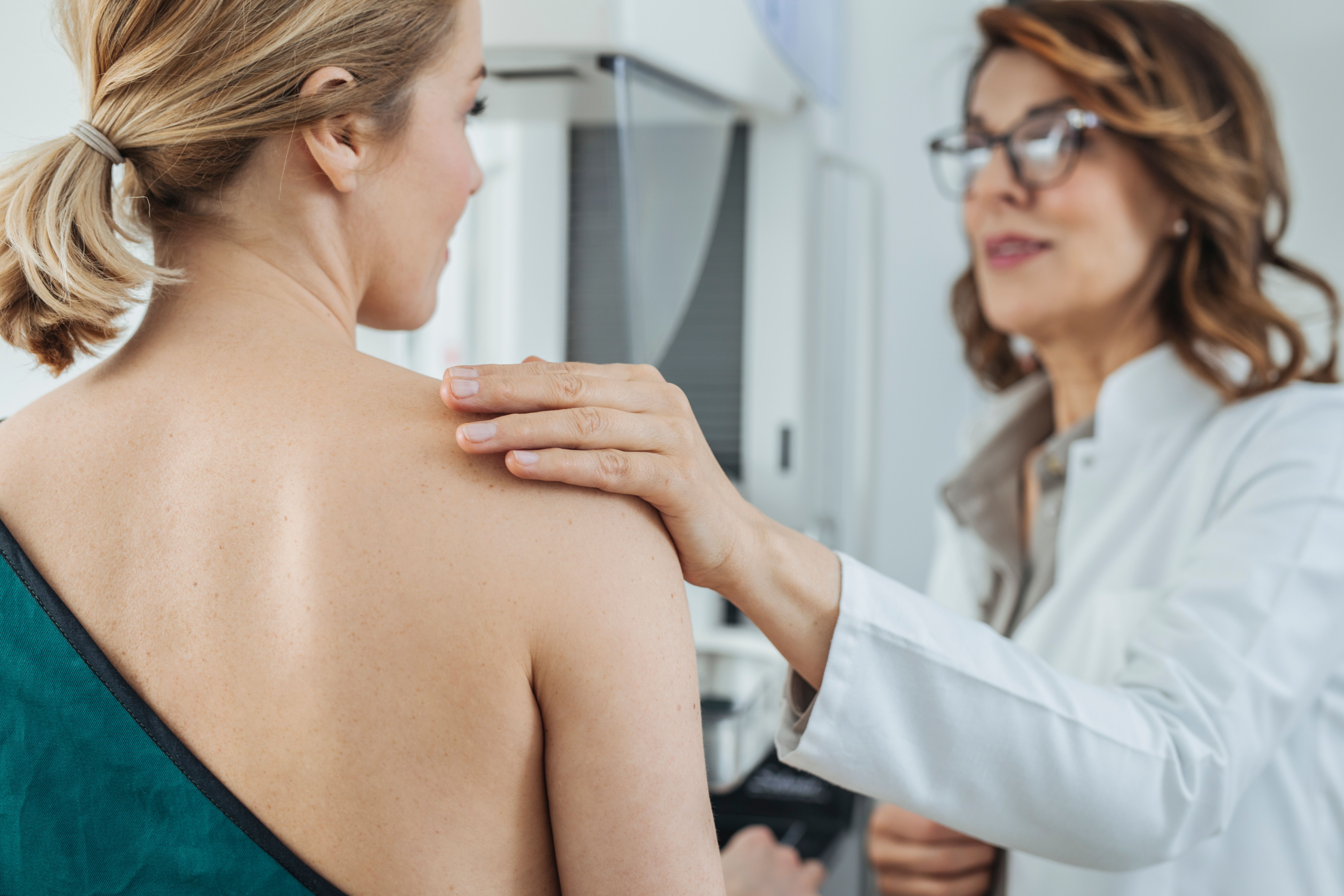US Preventive Services Task Force Recommends Breast Cancer Screenings Begin at Age 40
The screenings should be conducted every other year, beginning at age 40 and continuing through age 74, according to the new recommendation.
The US Preventive Services Task Force (USPSTF) has announced an updated recommendation on screening for breast cancer, dropping the recommended age to begin screenings to 40 years old. The screenings should be conducted every other year, beginning at age 40 and continuing through age 74, according to the USPSTF recommendation.1,2
Image credit: LStockStudio | stock.adobe.com

Breast cancer is the second most common cancer and second most common cause of cancer-related death among women residing in the US. Additionally, Black women are 40% more likely to die following a breast cancer diagnosis compared with white women, and are faced with deadly cancers at a younger age, according to study authors.2
“We need to know how best to address the health disparities related to breast cancer so all women can live longer and healthier lives,” said John Wong, MD, Task Force vice chair, in a news release. “Clinicians must help reduce any barriers to patients getting the recommended screening, timely, equitable, and appropriate follow-up, and effective treatment of breast cancer.”2
In a previous study conducted by the University of Ottawa, the researchers found that women between 40 and 49 years old that were screened annually for breast cancer had lower proportions of advanced breast cancer than women 50 to 59 years old who were not included in early routine mammograms.3
The findings highlight the importance of dropping the recommended age to 40 so that breast cancer can be detected earlier. The results also found that in Canadian provinces that did not regulate screening programs for women 40 to 49 years old, stage 4 breast cancer increased by 10.3% in women 50 to 59 years old over the 6 years they were studied. If detected at stage 1, the 5-year survival rate for breast cancer is 99.8%, compared to 23.2% for stage 4 diagnosis.3
Before the updated recommendation, USPSTF said women in their 40s should make an individual decision on when to begin screening, based on their health history and inclinations.2
“More women in their 40s have been getting breast cancer, with rates increasing about 2% each year, so this recommendation will make a big difference for people across the country,” said Wanda Nicholson, MD, MPH, MBA, Task Force chair, in a news release. “By starting to screen all women at age 40, we can save nearly 20% more lives from breast cancer overall. This new approach has even greater potential benefit for Black women, who are much more likely to die of breast cancer.”2
USPSTF noted that the recommendation pertains to women who are at an average risk of breast cancer, those with a family history of breast cancer, and individuals that have dense breast tissue.2 However, the USPSTF acknowledged that current evidence lacks information on the benefits and harms of screening for breast cancer using breast ultrasonography or magnetic response imaging (MRI) in women with dense breast tissue.1
USPSTF noted that the recommendation does not apply to individuals who have a personal history of breast cancer, have very high risk of breast cancer due to genetic markers, have history of high-dose radiation therapy to their chest at a young age, or who have had a high-risk lesion on previous biopsies.2
“Women deserve to have the best science available to guide them on how to protect their health, and we’re asking the research community to prioritize studies that can show us how best to screen for breast cancer in women with dense breasts,” said Nicholson, in a news release. “In the meantime, women with dense breasts should talk with their clinician about options for follow-up testing so that they can get the care that’s right for them.”2
